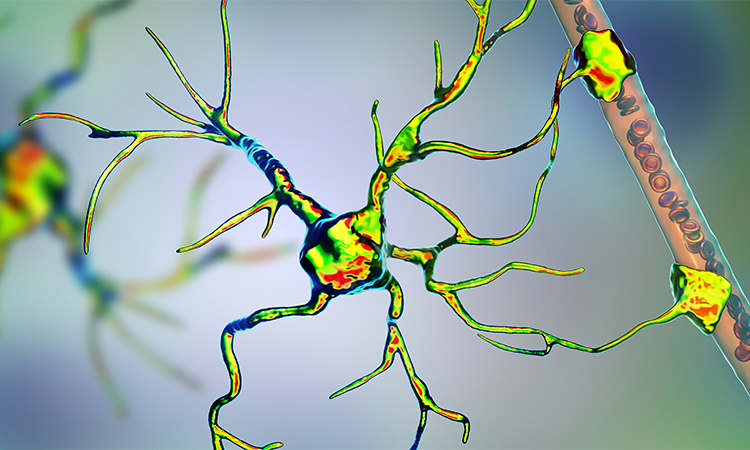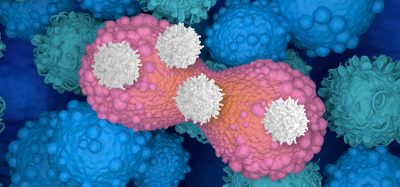Gene therapy approach shows promise in treating ALS
Posted: 3 August 2022 | Ria Kakkad (Drug Target Review) | No comments yet
In rodent models of ALS, the introduced neuroprotective protein slowed disease progression and increased life span.


In a new study, published in Theranostics, researchers at University of California San Diego School of Medicine, US report that their developed gene therapy approach measurably delayed disease onset in humanised mouse and rat models of familial amyotrophic lateral sclerosis (ALS), an inherited form of the disease that runs in families.
In previous research, the researchers had crossed a mouse model genetically engineered to express a neuroprotective protein called caveolin-1 with a transgenic mouse model of ALS. The double transgenic model exhibited better motor function and longer survival.
The latest work involved injecting a harmless adeno-associated viral vector carrying synapsin-Caveolin-1 cDNA (AAV9-SynCav1) into the spinal cords of familial ALS mice to see if it would delay disease progression and preserve physical strength and mobility.
Researchers found that SynCav1 protected and preserved spinal cord motor neurons and extended longevity in the mice. Subsequent experiments with a rat model of ALS produced similar results.
“These data suggest that SynCav1 might serve as a novel gene therapy for neurodegenerative conditions in ALS and other forms of central nervous system disease of unknown aetiology,” the authors wrote, advocating for further studies.
The research follows a study published in 2021 in which the team used a SynCav1 gene therapy approach to prevent learning and memory loss in a mouse model of Alzheimer’s disease, a key step toward eventually testing the approach in humans with the neurodegenerative disease.
“Because the neuroprotective efficacy afforded by SynCav1 occurred independent of targeting the known toxic monogenic protein (such as, mutant hSOD1), these findings suggest that SynCav1 may serve as a novel gene therapy for other neurodegenerative conditions in addition to ALS and Alzheimer’s,” concluded Dr Brian P. Head, senior author of the study. “However, it is essential for further studies to determine the effect of SynCav1 on disease progression at later stages of the disease.”
Related topics
Disease Research, Gene Therapy
Related conditions
Amyotrophic Lateral Sclerosis (ALS)
Related organisations
University of California San Diego School of Medicine
Related people
Dr Brian P. Head








